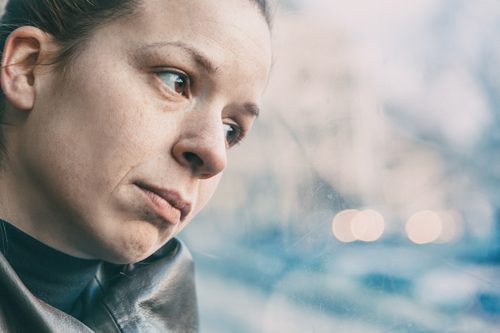 A certain kind of depression called Seasonal Affective Disorder (SAD) can be brought on by cold weather and the darkening skies of winter.
A certain kind of depression called Seasonal Affective Disorder (SAD) can be brought on by cold weather and the darkening skies of winter.
The colder temperatures and less exposure to sunlight during the winter months have a direct effect on melatonin and serotonin levels. This imbalance can make one have trouble concentrating, feel lethargic, and get depressed. Although these feelings can affect anyone, people who have SAD in addiction recovery are at high risk for relapse. The mood shifts, depression and tiredness can bring on cravings, because this was the old way difficult feelings were handled. The American Journal of Psychiatry states that people with addiction disorders or SAD have a higher risk of these disorders co-occurring.
The winter also includes holidays such as Halloween, Thanksgiving, Christmas, and New Year’s Eve. For people in recovery, these holidays probably used to include some sort of partying. Family and work events that include alcohol can bring extra stress to the person in recovery. This may leave the recovering person spending the holidays alone, which can also bring on feelings of sadness or depression. Isolation can lead to relapse, so it is important to know your triggers. During these months, amp up your recovery meetings, and talk about how the holidays and/or weather are affecting you.
Although the warmer months do not inflict weather-related depression, the spring and summer may have their own set of potential problems for people in recovery. Here’s one example from someone in recovery:
“My sobriety date is in September. I can still remember that first summer, when I was eight or nine months sober and I had to cut my lawn. My brain equated cutting the grass to having a cold beer afterward. That summer was a rough one for me. I realized that yard work was a trigger. I learned to substitute. I experimented with all different flavored waters. I tried different flavored seltzers, and a variety of zero calorie, zero sugar, zero caffeine carbonated waters. I kept a full stock of these in my kitchen. After I cut the grass or did yard work, I would drink one of these carbonated beverages and it dissolved my craving for a beer.”
The summer is filled with barbeques, and holidays like Memorial Day, Labor Day, and Independence Day. It may be difficult to enjoy these holidays in early recovery if they were previously related to drinking or partying. This is also the season that most people take vacations. A vacation without drinking or getting high may be foreign to those in recovery. Going on a family vacation and remaining sober can be scary. Parents in recovery can experience extra stress of the children being off from school. All of these things can trigger a relapse.
Getting in touch with what triggers thoughts of drinking or getting high is one of the first steps to prevent a relapse. Preparation can make a world of difference. If you are invited to a Christmas party where you know that there will be drinking, you can decide whether or not to go. If you do go, you may be able to bring a sober friend. If you decide that not to go, it may be a good idea to spend that evening doing something else you enjoy so that you are not withdrawing yourself and feeling depressed or lonely. If the warm weather brings memories of drinking, prepare to do other things that you find enjoyable. As stated above, going to meetings is especially helpful during these time periods. Most clubhouses where there are AA or NA meetings will have their own parties for the holidays where all are welcome. You never need to be alone!



